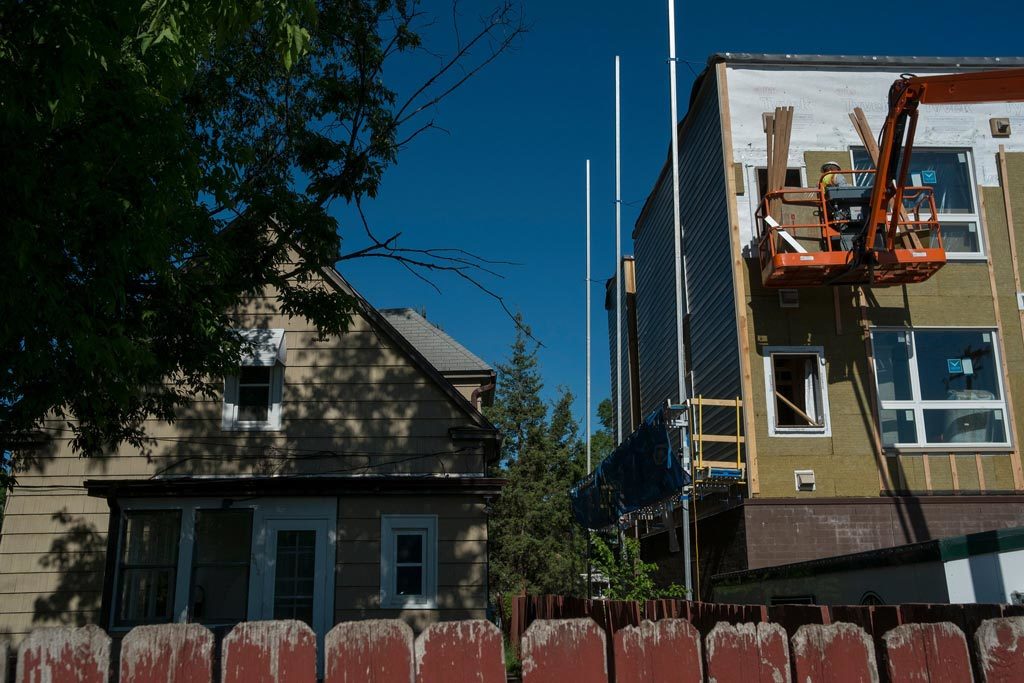
Housing is one area of American life where government really is the problem. The United States is suffering from an acute shortage of affordable places to live, particularly in the urban areas where economic opportunity increasingly is concentrated. And perhaps the most important reason is that local governments are preventing construction.
Don’t be misled by the construction cranes that punctuate city skylines. The number of housing units completed in the United States last year, adjusted for the size of the population, was lower than in any year between 1968 and 2008. And the problem is most acute in major urban areas along the east and west coasts. Housing prices, and homelessness, are rising across the country because there is not enough housing.
Increasing the supply of urban housing would help to address a number of the problems plaguing the United States. Construction could increase economic growth and create blue-collar jobs. Allowing more people to live in cities could mitigate inequality and reduce carbon emissions. Yet in most places, housing construction remains wildly unpopular. People who think of themselves as progressives, environmentalists and egalitarians fight fiercely against urban development, complaining about traffic and shadows and the sanctity of lawns.
That’s why a recent breakthrough in Minneapolis is so important. The city’s political leaders have constructed a broad consensus in favor of more housing. And the centerpiece is both simple and brilliant: Minneapolis is ending single-family zoning.
Read more: Americans Need More Neighbors
comments